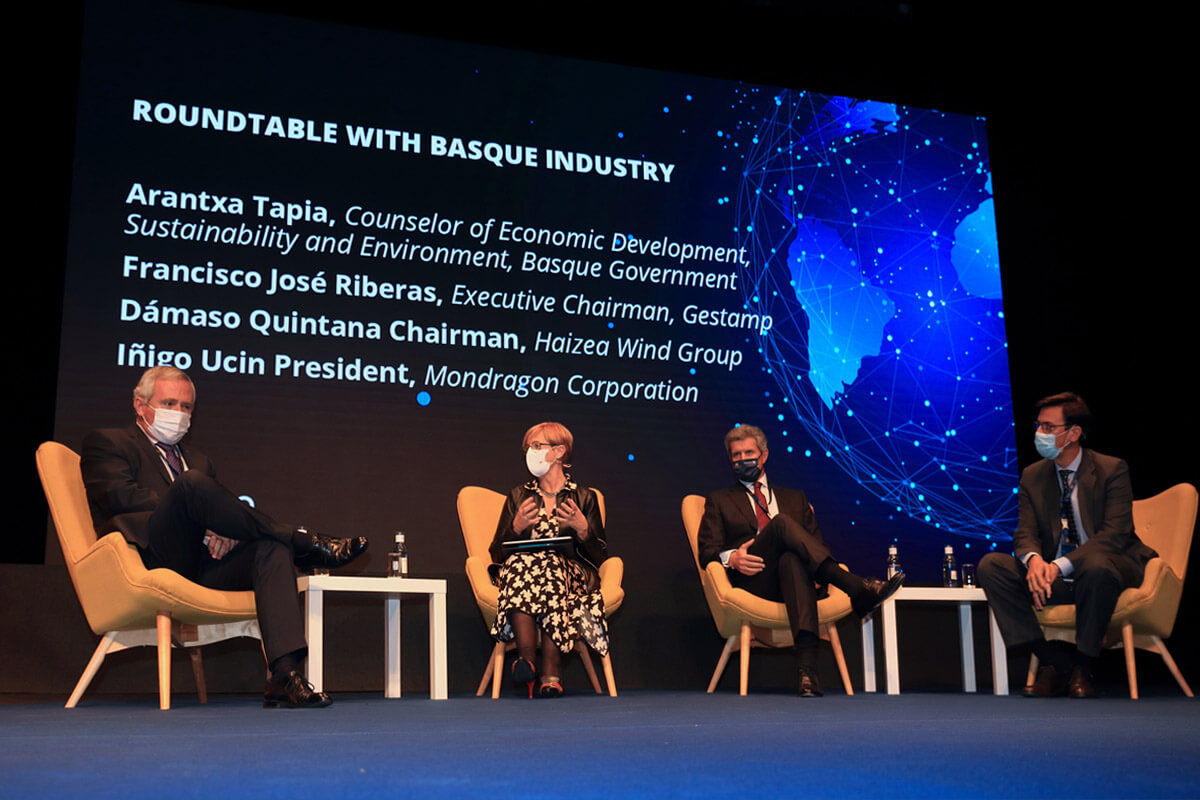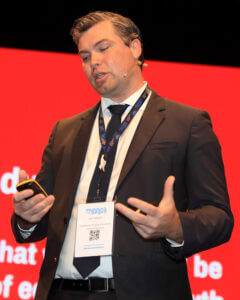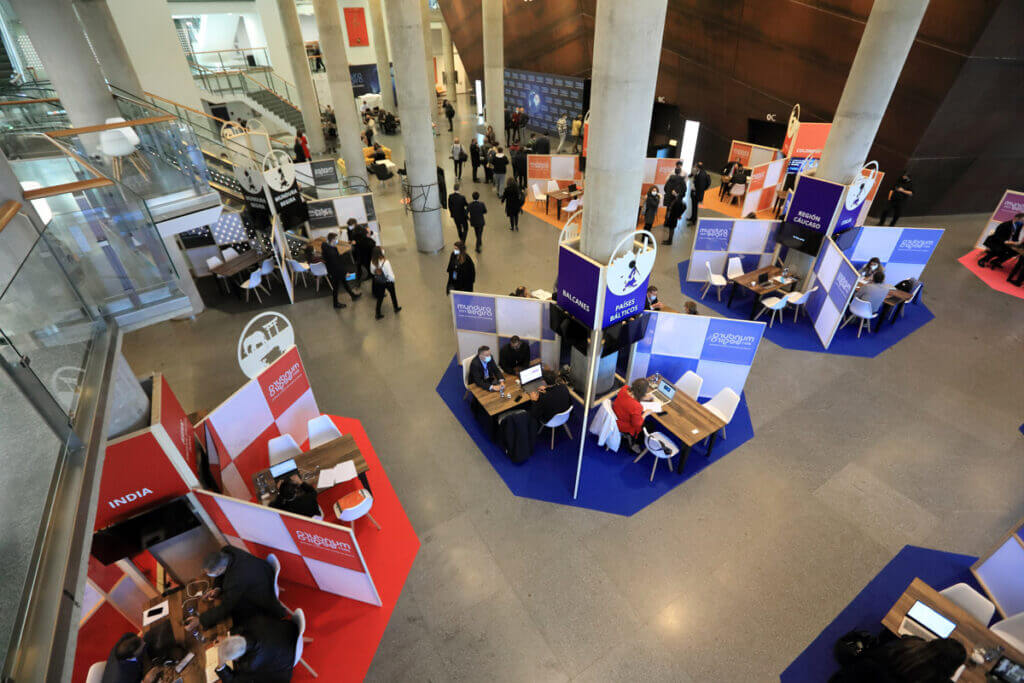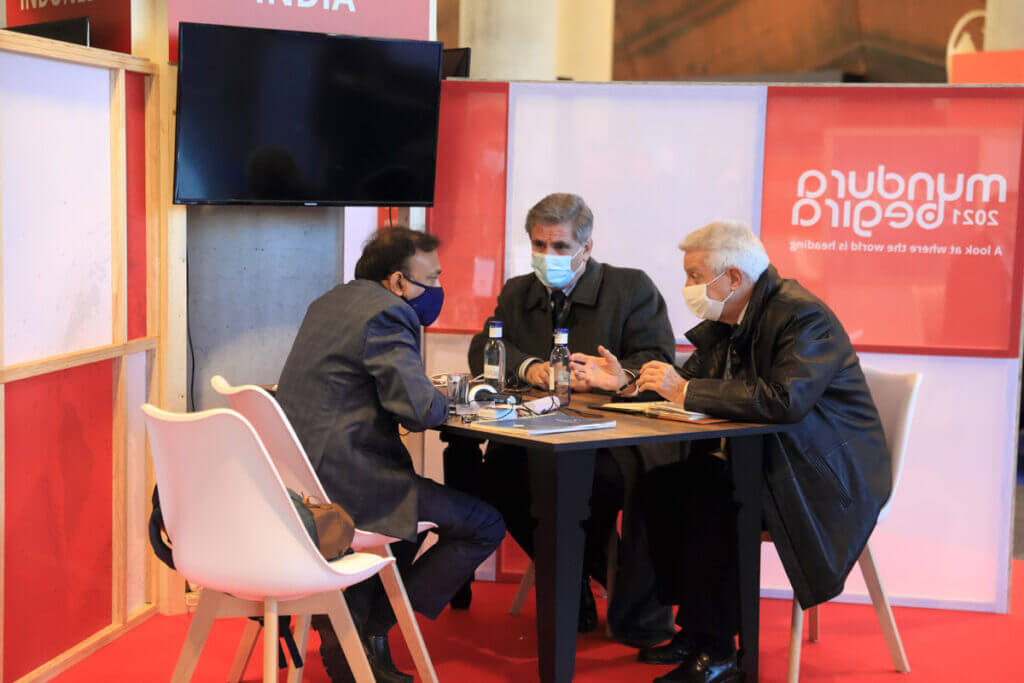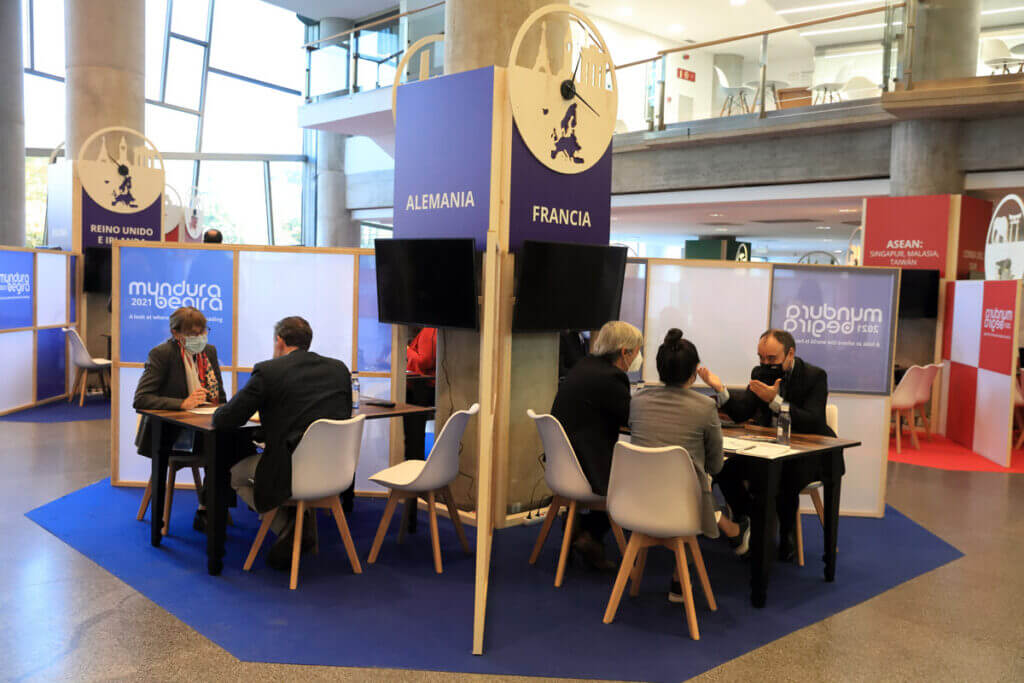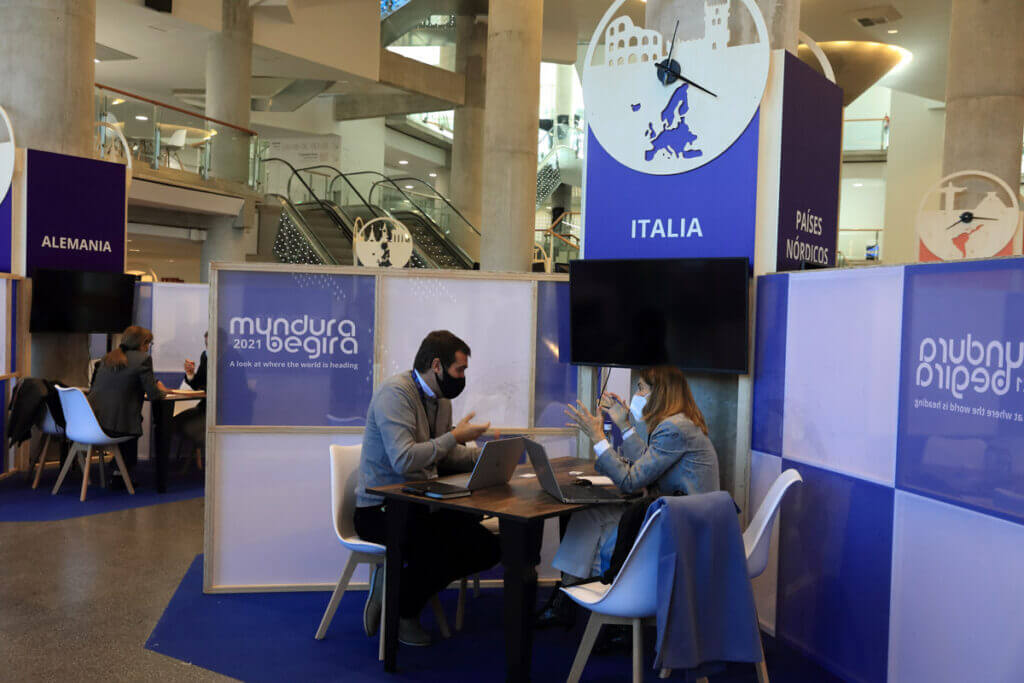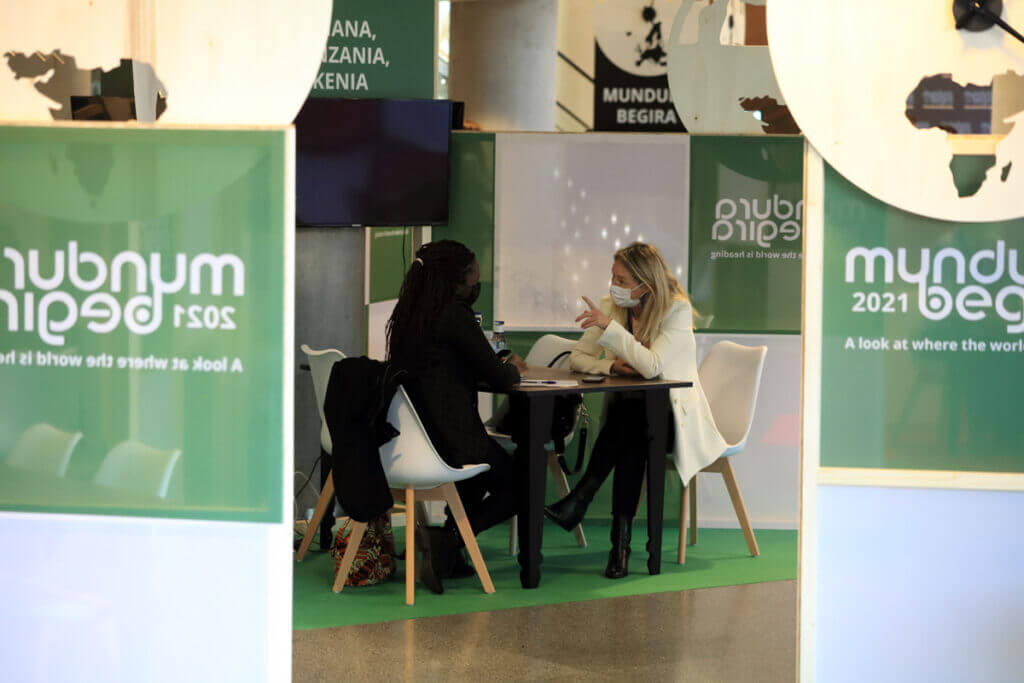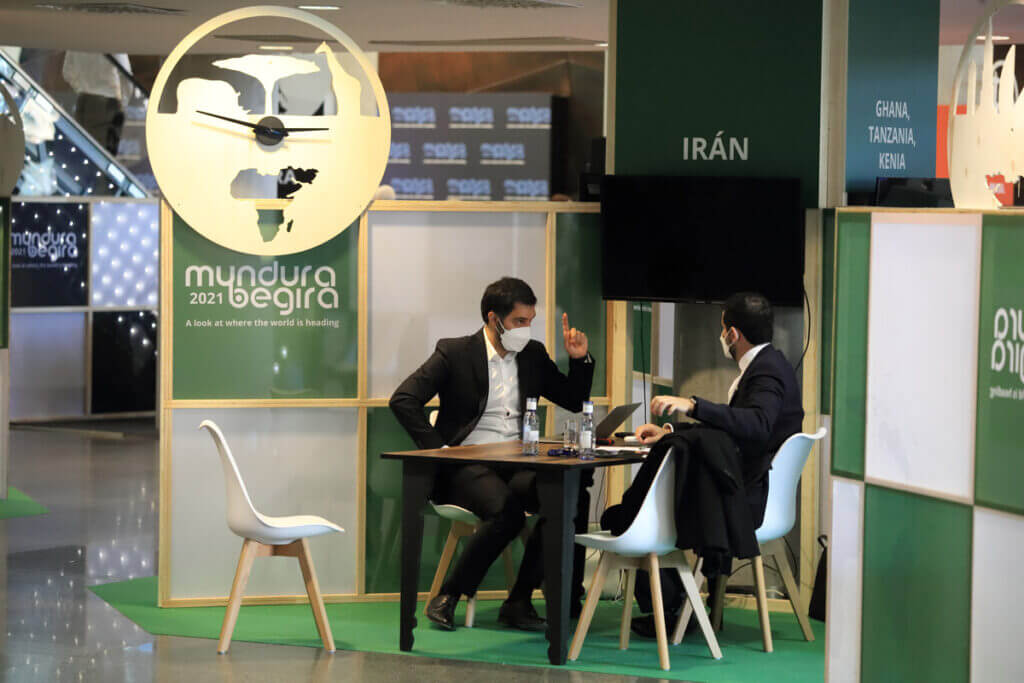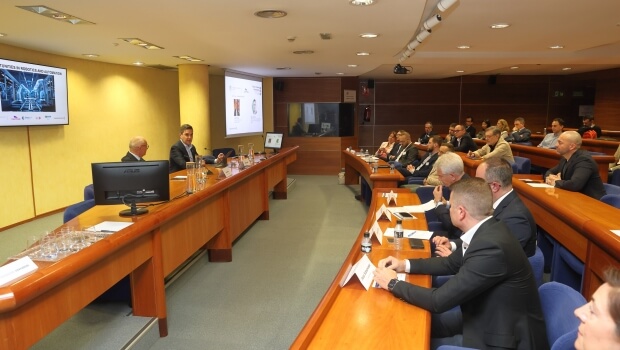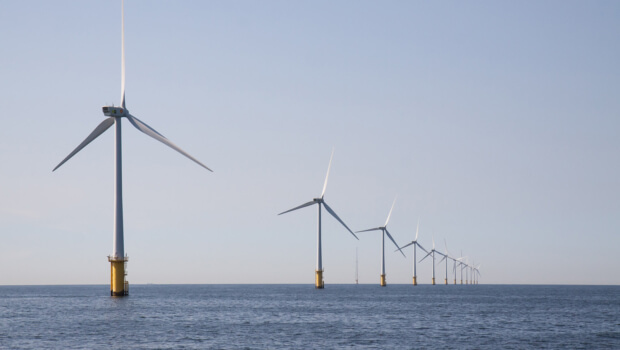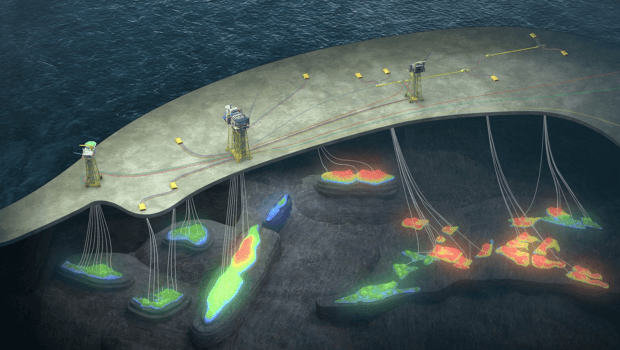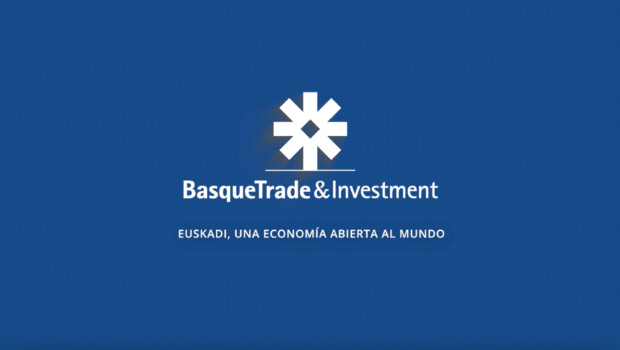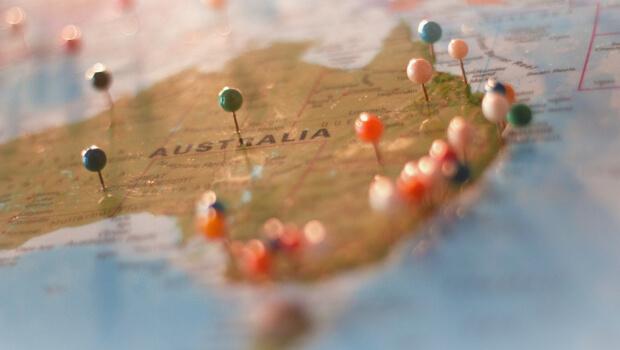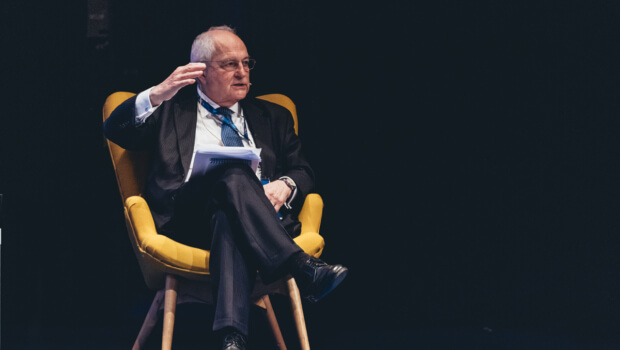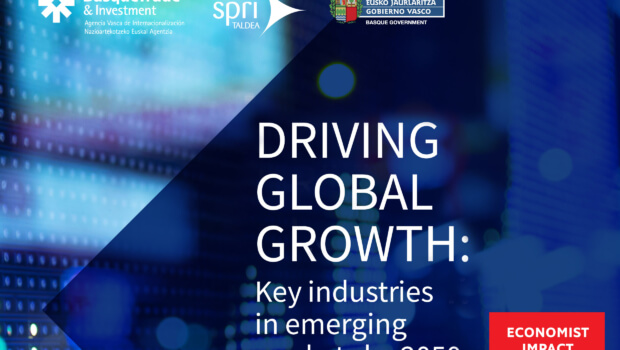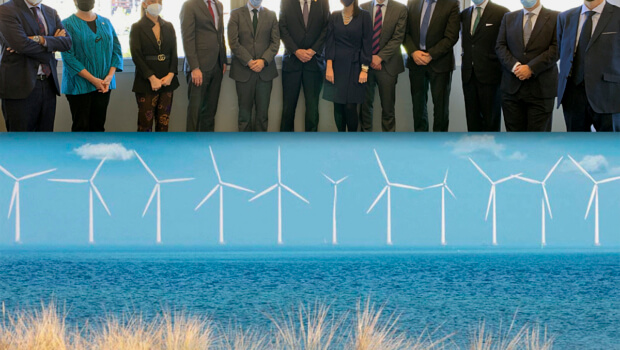Keys to Mundura Begira 2021
The global economic scenario in 2050 will be determined by the response to the technological and socioeconomic challenges that each of us face. At this new juncture, emerging markets will undoubtedly gain importance in world trade and the economic axis will gradually shift towards Asia.
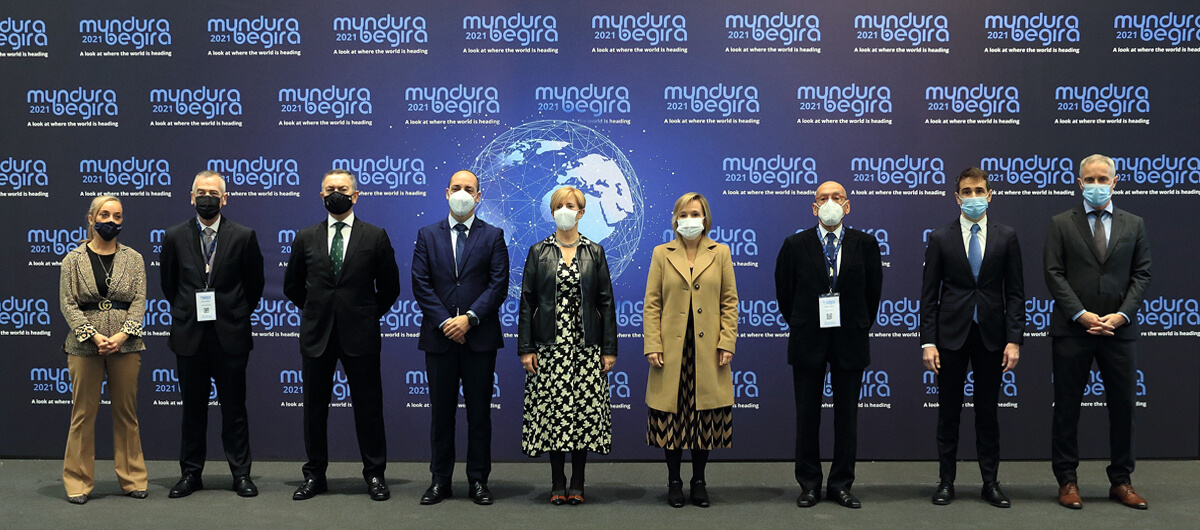
To face these challenges and be competitive, Arantxa Tapia anticipated in Mundura Begira, that “it will be essential in all territories to adapt to the advances of the key industries that will drive the global economic transformation that is already taking place.” And in this scenario, the Basque Country is already immersed in the major transitions that will mark the future of the economy: the energy-climate, the technological-digital and the socio-health.
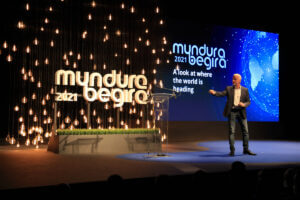
For decades, the Basque Country has worked to adapt to and lead the major changes in the industrial sector.As a result of this intense and continuous work, today we can affirm that the Basque Country is a European reference for having successfully promoted a process of industrial transformation, driven by a strong public-private collaboration, which has allowed it to evolve from an economy based on a heavy industry in decline to an industrial economy driven by knowledge and technology. As a result, she says, we can enjoy one of the highest levels of social welfare on the planet.
The recent edition of Mundura Begira, the event hosted by Jack Vincent – Focus360 and organized by the Basque Agency for Internationalization – Basque Trade & Investment of SPRI Group, went over the current and upcoming global scenario with 600 participants – live and online – interested in anticipating future trends and, thus, perhaps being able to better orient and channel their business strategies.
Un excelente plantel de ponentes con gran expertís en la materia, abordó en sus intervenciones las principales claves de este viaje al futuro en el que las instituciones y las empresas vascas quieren situarse y posicionarse de manera destacada.
An excellent group of speakers with great expertise in the field, addressed in their speeches the main keys of this journey into the future in which Basque institutions and companies want to position themselves and position themselves prominently.
“Embrace technology but don’t become technology.”

Gerard Leonard, president of The Futures Agency, emphasized in his talk that “the next 10 years are going to bring more change than the previous 100, not just because of technology.” He warned the business world that the industry 10 years from now will not be as we know it today: “The future is not tomorrow, it is here already.”
In his speech, Leonard noted that the future lies in digitization, decarbonization and reform. He asserted that the pandemic is a test for climate change. Oil and gas will end when it is no longer a business: “Green is the new digital age”.
Women’s Leadership in the post COVID scenario
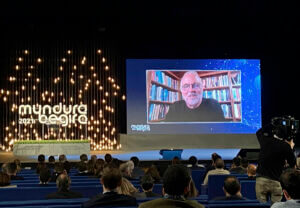
Craig Calhaun, professor at the University of Arizona, spoke of the post-pandemic scenario, which has become “a geopolitical challenge where the major leaders have been women, because the men have dedicated themselves to arguing among one another… And all this has been a bad sign for other challenges such as climate change.” This academic and member of the British Academy, considers that the pandemic did not disrupt a stable social order: “The pandemic already disrupted a world that was unstable, that was going through a great transformation.”
Identifying opportunities and forcing collaboration

Linda Yueh, associate professor at London Business School and a fellow at Oxford University, shared in Mundura Begira that in her view the post-covid scenario looks very much like the previous one “but with one important change: We must collaborate among the major economies.”
A panel discussion moderated by the Financial Times’ chief journalist, Martin Wolf, raised the bar for the outlook for the global economy: “The most degenerate form of democracy is one that does not look after the welfare of its great masses of people,” he said.
In this discussion, Christian Ketels, professor at Harvard Business School, emphasized the uncertainty “about where we will end up in the economy” after the pandemic, confirming that we are in a time where there are many risks and inviting companies to diversify their businesses: “There is a lot of heterogeneity that has been increased by the pandemic and you have to understand the specific situation of your sector and your competitive position.”
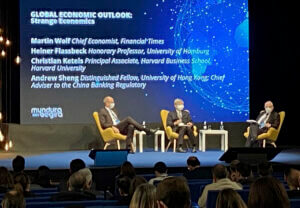
In the opinion of Heiner Flassbeck, honorary professor at the University of Hamburg, Europe has not learned “that it is a closed economy and should not wait for exports to come”. He believes that the political reaction to the pandemic has been much faster than after the previous financial crisis, “but still not fast enough.”
Finally, Andrew Sheng, a distinguished member of the University of Hong Kong and of the advisory board of the China Banking Regulatory Commission, recalled that we are facing “enormous challenges for the world” and pointed out that China is interested in reducing inequality between rich and poor.
Lifelong learning, STEM and Soft Skills focus
John Carl Fergurson, head of Globalization, Trade and Finance at Economist Impact, spoke about the opportunities and threats for Basque Industry in an era in which emerging countries will dominate the world economy. He highlighted that economies such as Vietnam or Bangladesh will have great growth in the coming years and made concrete proposals for companies to promote “lifelong learning in their professionals: incorporating a STEM approach and “developing the softer skills, the more human skills.”
Opportunities and challenges for Basque companies
John Carl Ferguson had summarized the technologies and markets that will play a leading role in economic development until 2050, but how will the opportunities and challenges for Basque companies materialize in this context… How can we take advantage of them?
Today, Asia already accounts for a third of the world’s GDP and 30% of global trade. If Asian countries are to lead world trade by 2050, accounting for 40% of global trade, the world economic axis will surely shift inexorably towards Asia. In fact, by 2050, 7 of the 15 most advanced economies in the world will be Asian, with emerging countries such as Indonesia, Vietnam and Bangladesh, mentioned by Ferguson, in the top 15.
Ainhoa Ondarzabal also stressed that the Basque Country is an economy open to the world, with around 5,000 exporting companies and more than 2,000 establishments in the 5 continents. “However, Asia, represents for our companies the third destination of exports, after Europe and America, with a reduced 6.5% of total exports, far from the figures in our traditional markets.”
The presence of Basque companies in the region is important in China and India, but in the rest of Asia it is not very significant. Of the 383 establishments, there are only half a hundred outside these two countries: “The time has come to look at Asia in a different way, we have to prepare ourselves for the opportunities in this region; being established in the area will be a fundamental value,” announced the director of Basque Trade & Investments in the SPRI Group.
But what will be the challenges and technologies that will open up opportunities for Basque companies in this continent? And how can Basque companies contribute to these challenges?
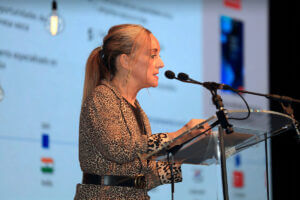
In this context of growth, opportunities will multiply in Asia: in addition to the opportunities arising from growth strategies and the evolution of manufacturing and specialization models, there will be all those linked to the 3 transitions: green, digital and social and healthcare.
Among the growth strategies, Ondarzabal cited that we will see a greater degree of openness to foreign direct investment, “especially in export-oriented sectors such as automotive, electronics or textiles, as well as the announcement of large public investment plans, especially in sectors linked to the three transitions…. We will also see a growing productive specialization in the region, with countries that will move from a low-cost manufacturing model to one of high technological value, such as China,” as well as others that will absorb the relocation of production from China, such as Vietnam or Bangladesh.
Within advanced manufacturing, Basque companies will find opportunities in the areas of machinery and production technology, products with technological content and services related to industry. In the field of the three transitions, it will be key to identify sectors where our companies are a reference: “In this sense, smartgrids stand out in the field of digitalization, offshore energies in the field of sustainability or e-health and biotechnology in the socio-health area,” he specified.
There are no opportunities without challenges
- To succeed in Asia, Basque companies will have to develop proactive and sustained strategies over time. For Ondarzabal, “they will have to make clear bets.
- to ensure local presence, to accompany our international and local customers and to be able to compete in terms of cost, speed of response or adaptation to local rules. To compete in Asia, we have to be in Asia.
- the specialized talent in internationalization, both Basque and local, through the integration of professionals with international experience and trajectory in Asian markets and local talent in the business units at destination. To compete in Asia we have to be Asian.
- For the positioning of Basque products and services, through the implementation of actions linked to the promotion and positioning before local agents.
- the development of digital technologies for promotion and sales in Asian markets. This is going to be a particularly relevant aspect due to the high digital development these markets have experienced.”
Basque Trade & Investment will accompany companies in their challenges
The Basque Government considers the establishment of greater and better connections in the Asian area a priority and, therefore, will strengthen its presence with the opening of three new commercial offices; to the current infrastructure in China, India and Singapore, from where coverage is offered to the region, a new office in Japan will be added at the end of this year and those in South Korea and Turkey in 2022. These offices will have the corresponding professional teams specialized in business support, which will also be enriched by the young talent that will come to Asia, through the 600 scholarships offered annually.
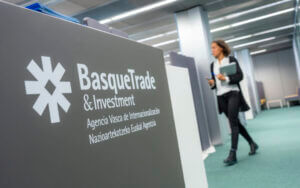
The role of the Basque Trade / SPRI Group’s Foreign Network will be fundamental in identifying business opportunities for Basque companies, which, among other instruments, will have access to investment portfolios or the identification and development of opportunities with large Asian corporations.
And undoubtedly, corporate diplomacy will facilitate the better opening of doors and management of relationships with large customers and local governments. All this will contribute to position and consolidate the Basque Country, the products and services of the Basque company in Asia, which will also receive help in the development of support services for digitalization and online positioning.
In the future, Asia will lead global economic growth through the development of new technologies, openness and growth policies and new manufacturing models: Basque companies have to prepare themselves to address these opportunities and from BasqueTrade & Investment we will accompany you on that path,” Ondarzabal concluded.
The Basque Country is one of the most open economies in Europe.
“A Look at where the World is Heading”: Ideas, Concepts, Opportunities, an important Knowledge for Basque Companies to be able to apply it and improve their Internationalization strategies, minimize risks and be more accurate in all their foreign action projects. In this changing and competitive scenario, the Councilor for Economic Development, Sustainability and Environment, focused on some of the strengths of our country: “Today, the Basque Country is one of the most open economies in Europe, above countries like Italy or France, with more than 5,000 exporting companies and production facilities in the five continents. Moreover, it has become a technological reference with global leaders such as Siemens-Gamesa, Iberdrola, CIE Automotive or Gestamp having their headquarters in the Basque Country. ”
Arantxa Tapia initiated an interesting debate with the presidents of three important Basque companies: Haizea Wind Group, Gestamp and Mondragon Corporation.
For Dámaso Quintana, “it is impossible to compete onshore without being in Asia”. He also made known that in his wind sector, the Asian market has lower production costs: “In Haizea we are working on production models to reduce costs”, such as making parts of the towers in Europe…” In his speech he also addressed the SMEs to encourage them not only to address China in their plans: “They should forget about organic growth and look more fondly at India.” Quintana stressed the importance of having common rules for sustainability across the globe, predicting that it will bring many opportunities.
Francisco José Riberas corroborated the importance of entering Asia, but with a long-term approach and a serious plan. He considers that there are many risks involved, but even more risks if it is not done… “You have to go and think about how they think there to really be able to succeed there,” he said. The president of Gestamp shared that his company’s strategy is linked to the big automakers: “We sell 13% of our products in Asia. We intend to reach 20% in the next few years. We seek to compete by technology and not by cost.”
Mondragon’s case in Asia is varied due to the different products offered by the Basque Corporation, given that “in China alone we have 21 production plants”. Iñigo Ucin shared that in the Asian market there are going to be numerous opportunities for the green economy and everything that enables its growth, as well as in the health-related sectors.
Undoubtedly, three interesting testimonies that confirm the main transition spaces for the future of the economy: the energy-climate, the technological-digital and the socio-health, all aligned with the current challenge of the Basque Government, focused on promoting a model of economic development that integrates sustainability as a lever of competitiveness: We aspire that by 2050 Euskadi will be a ‘net zero’ country and continue to advance in technological excellence… “Therefore, we are convinced that we will be a trusted partner for the development of other territories, contributing to the generation of richer, fairer, more sustainable and inclusive societies, both in emerging economies and in our own territory…” concluded Councilor Arantxa Tapia.
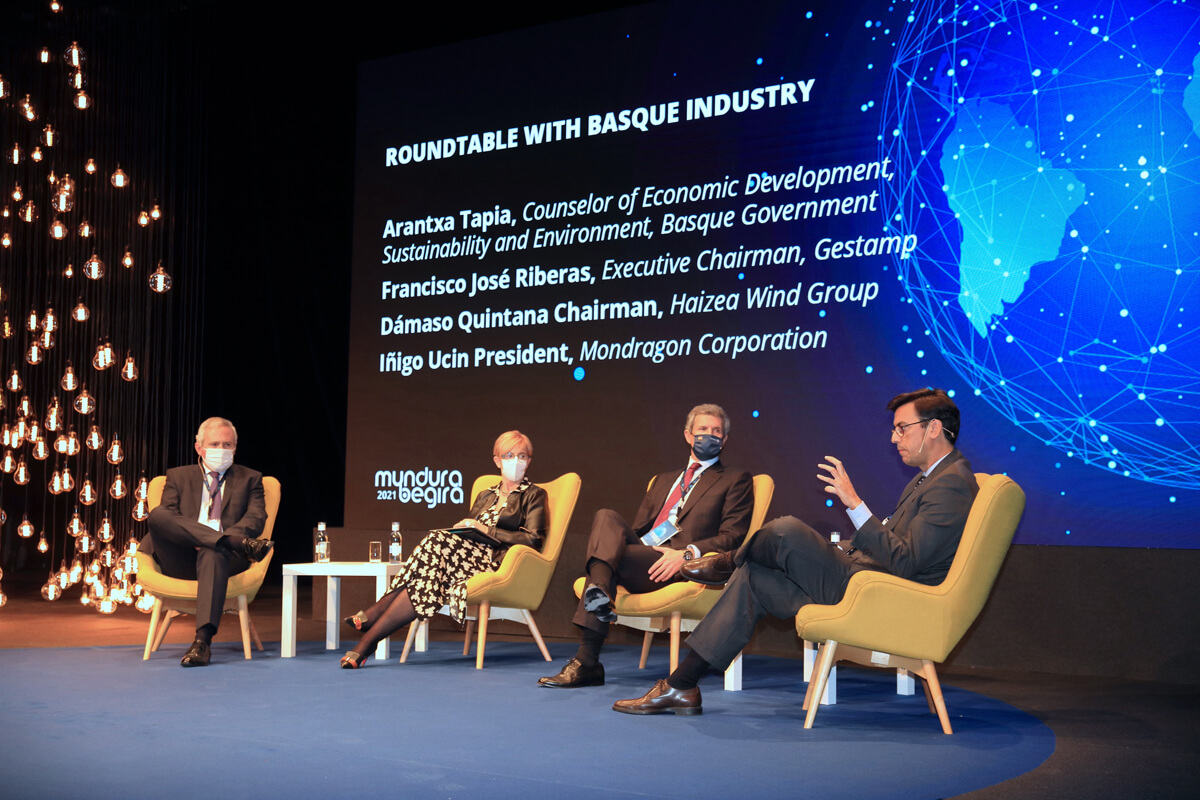
DRIVING GLOBAL GROWTH: Download here the report on key industries in emerging markets for 2050
The Economist, the prestigious weekly English-language edition that covers international relations and economic news from a global perspective, has prepared a report on world growth, analyzing the emerging markets for the year 2050, a list headed by China, India and Indonesia, as well as Mexico, Brazil, Vietnam and Bangladesh.
- Complete Report The Economist
- Summary “Asia will drive global economic growth:
Opportinities and challenges for Basque companies”
Full day and interventions, Spanish and English:
Meetings of the Foreign Network with companies

